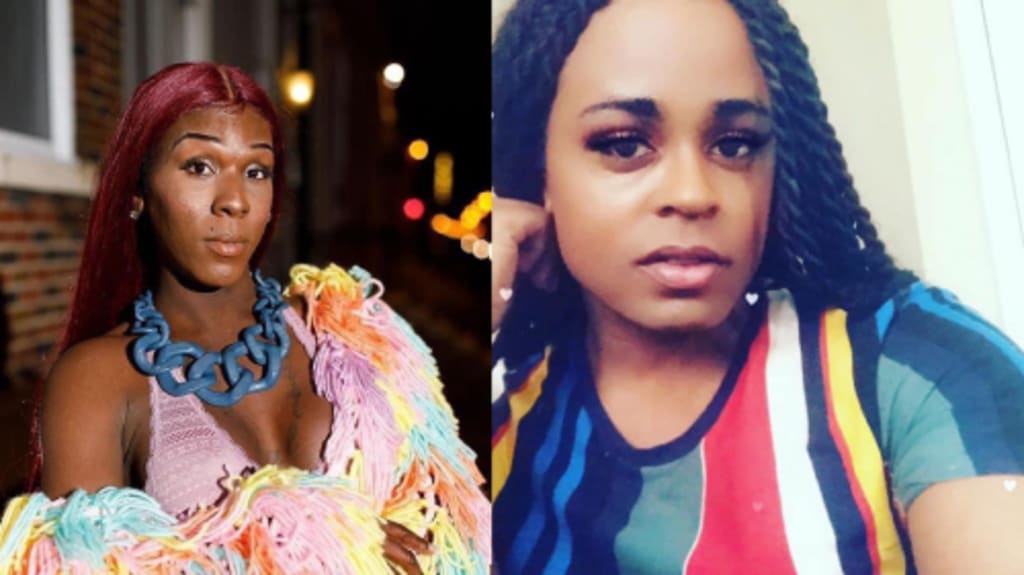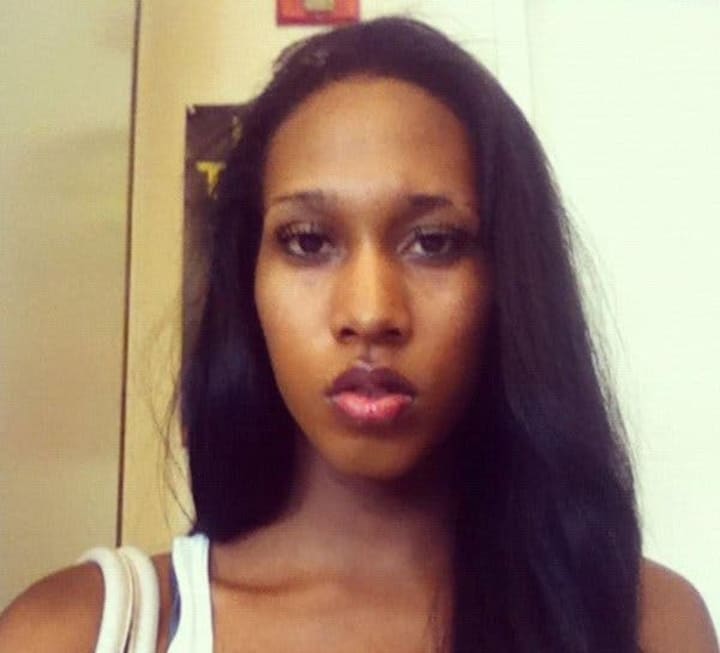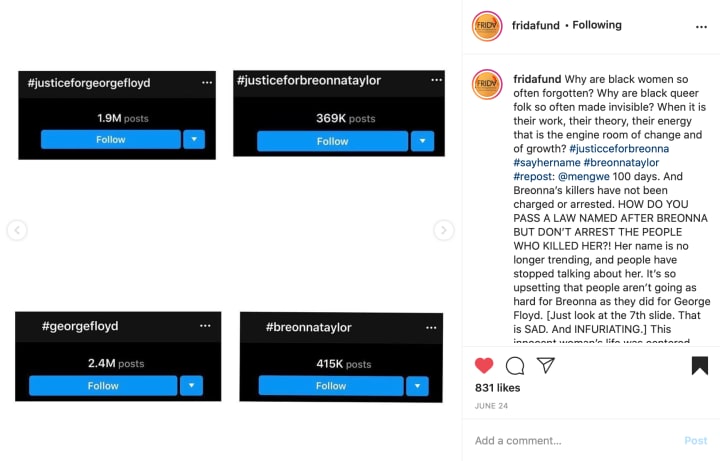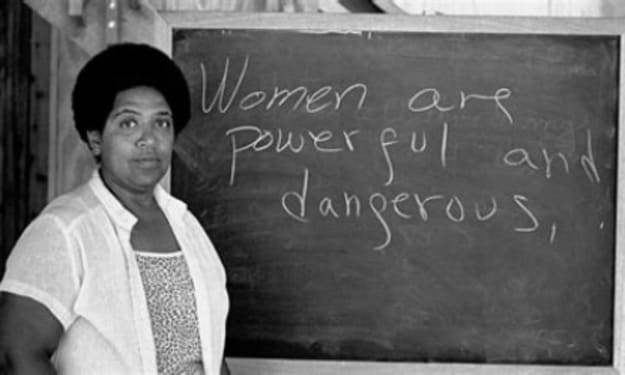Black Trans Lives Matter, too- and we need to keep saying it
The killings of George Floyd and (to a lesser extent) Breonna Taylor sparked worldwide protests. So why do the killings of black trans people fly under the radar by comparison?

It’s been over three months since George Floyd was murdered, and the tidal wave of anger and resistance unleashed by that latest in a long line of dead black bodies is still at the forefront of our consciousness, even if it no longer dominates the newspaper headlines. The demonstrations- which started in Minneapolis and spread rapidly, first across the U.S.A and then worldwide- have made the already widely-known Black Lives Matter movement a household name. Calls for justice for Floyd’s death were swiftly joined by the same demand for Breonna Taylor, shot eight times by police officers who’d burst into the wrong house. And the resulting media attention, from the New York Times to Instagram, has drawn an unprecedented level of cultural and societal attention to issues of systemic racism and police brutality. In particular, calls to “defund the police” have highlighted the nauseating extent to which police forces have both neglected and outright persecuted non-white- and particularly black- communities.
Then, at the beginning of June, as the protests gained momentum worldwide, two more murders were committed within 24 hours of each other. On the night of the 8th, the remains of 27-year-old Dominique Rem’mie Fells were discovered by a river in Philadelphia. The next day, 25-year-old Riah Milton was fatally shot in Cincinnati.
Be honest: at the time, did you know about these murders? Or even if you did vaguely know, maybe because you’ve seen social media posts about them, could you actually remember their names? Because I couldn’t.
The International Transgender Day of Remembrance is held annually on the 20th of November. It’s a time dedicated to honouring the memories of murdered transgender and gender-diverse people. And their numbers are as depressing as they are disturbing.
In December 2019, Yahira Nesby became the 25th (at least) trans victim of homicide in the United States. That year, Trans Respect versus Transphobia Worldwide catalogued a total of 30 deaths in that country, and 2020 apparently has a competitive streak: as of the beginning of August, 28 have been killed so far. Last year's 30 homicides, meanwhile, were among 331 recorded worldwide; the U.S. had the third highest body count, after Brazil and Mexico.
Most notably, the more female your gender identity and the darker your skin, the worse your chances get: the Human Rights Campaign notes that ‘fatal violence disproportionately affects trans women of colour- particularly black trans women.’
To summarise- and in case you still need it spelled out for you- transgender and otherwise gender-diverse people comprise one of the most systematically and ubiquitously persecuted minorities on the planet. And when the worst happens, their deaths are among the most glanced-over.
Such elective blindness is to be expected from those outlets whose ethos is blatantly anti-trans, but even more progressive ones may have some inadvertant bias regarding who they write about. Searching ‘George Floyd’ on HuffPost UK, for instance, produces 279 results, while articles containing Breonna Taylor’s name number a comparatively measly 39. Meanwhile Tony McDade, a trans man (yes, I know he committed a murder but that rarely stops the police when the murderer is a white man, armed or otherwise), has ten. And Dominique Fells and Riah Milton? One passing mention in one single article between them.
Yes, the contexts of those murders are completely different given that the last two, while heinous, were evidently not acts of police brutality. This is in stark contrast to Floyd and Taylor, whose killings were just the latest in a long and bloody line of police brutality against black Americans, with the police in turn forming just one branch on a big, ugly tree of systemic racism and the prioritising of white property and life over black which dates all the way back to before the abolition of slavery. (I’m not even kidding- read Michelle Alexander’s The New Jim Crow, watch Ava DuVernay’s documentary 13th or check out the Last Week Tonight clip below if you’re pressed for time.)
However that difference in context, while important to acknowledge, should not be used as an excuse to let the killings of Dominique and Riah fly under the radar. After all, both women’s deaths are still linked, however indirectly, to the high death rate faced by trans people, and to the constant threat of everything from discrimination to outright violence that the trans community as a whole faces every day.
One way or another, for example, those deaths often have ties in some way to police forces’ and judicial systems’ generally failing to serve marginalised communities, both queer and of colour. Marsha P. Johnson’s death, for example, was written off as a suicide despite a wealth of other possibilities as shown in The Death and Life of Marsha P. Johnson- possibilities that might have led to justice if anyone had bothered to investigate them at the time. The documentary’s telling of Marsha’s story also intersects, briefly, with that of Islan Nettles (see below). And even when trans people are killed by other trans people, or die by cancer or drug overdoses or suicide, none of this can be divorced from the fact that they were born into societies full of systemic, deeply ingrained biases and prejudices. Biases which were always going to leave them at a high risk of everything from the poverty that pushes many into dangerous, exploitative forms of sex work- since the Trans Murder Monitoring project began, 61% of the known victims have been sex workers- to the social isolation and self-loathing that causes many a suicide. As the Human Rights Campaign's ‘Dismantling a Culture of Violence’ report puts it, they’re stuck living in a world where ‘anti-transgender stigma, denial of opportunity and increased risk factors compound to create a culture of violence’. In this way, everything from a sex worker's murderous client to a fatal botched robbery can be traced, albeit in a complex, convoluted way, back to transphobia, just like the seemingly blameless tragedy of a black woman dying in childbirth can be traced back to racism.

In fact, if we're measuring by contexts and levels of overt prejudice, the name "Islan Nettles" should be considerably more well-known. First, unlike Riah's murder Islan's was explicitly transphobic in nature: James Dixon only attacked her after discovering that she was trans and used the "gay/trans panic" defense when questioned, just as Gwen Araujo and Matthew Shepard's killers did. The law enforcement response was reportedly lacklustre at best, despite the attack occurring opposite a police station. And although her killer was caught and convicted, like most black people harmed by trigger-happy cops she was to an extent still failed by the justice system, with her family criticising his sentence as too light. Yet her death has not brought her anything like the household name status or cultural ubiquity held by Floyd, or- to locate her within the LGBTQ+ as well as the black community- by Shepard. (Neither, for that matter, has Gwen's.)
The point is, violence and cruelty don’t exist in a vacuum. Trans people are- and in some societies, always have been- at the lowest levels in our species’ constant, poisonous, unspoken hierarchy that determines exactly how much each human being’s life is allowed to matter, with black trans women being the most in danger, and the most forgotten.
White lives are still the most valued, obviously (although of course it’s more complicated than that for those who are white and female, gay, trans, disabled etc.). But even when it comes to black lives, cisgender men seem to be prioritised over cisgender women. After all, Breonna Taylor was killed weeks before George Floyd yet it was his death, not hers, that was met with worldwide protests. And while the police officers who murdered Floyd have now been arrested and charged, Taylor's killers have not. Now that the world’s outrage is rapidly dying down, they probably never will. The killings of Riah and Dominique, meanwhile, have been brushed aside as insignificant drops in the ocean by comparison.

But if nothing else- and this is setting the bar depressingly low- at least both women's deaths were reported, while they themselves were acknowledged for who they were. They were recognised as (trans) women, their identities and wishes respected. Many, however, aren’t so lucky. McDade, for example, was initially misgendered by both the police and the media. Bree Black, a trans woman killed in Florida last month, was also misgendered and dead-named by some local news outlets- and such "mistakes" are far from exceptions. Besides, remember the 331 trans people murdered last year? TRTW makes a point of stating that the actual number is likely to be much higher, since 'In most countries, data on murdered trans and gender-diverse people are not systematically produced and it is impossible to estimate the actual number of cases.' Often, a trans homicide victim will become just another person who slips through the cracks, ignored and forgotten.
When deaths such as Bree’s are discussed on social media, a common refrain is “no-one’s talking about it”- and that, just like the violence itself, can’t be allowed to continue. Women like Dominique and Riah can’t be left to become just one part of a statistic. As long trans people- and, at disproportionately high rates, black trans women- keep being murdered, we need to keep talking about it.
If nothing else, we need to remember their names.






Comments
There are no comments for this story
Be the first to respond and start the conversation.